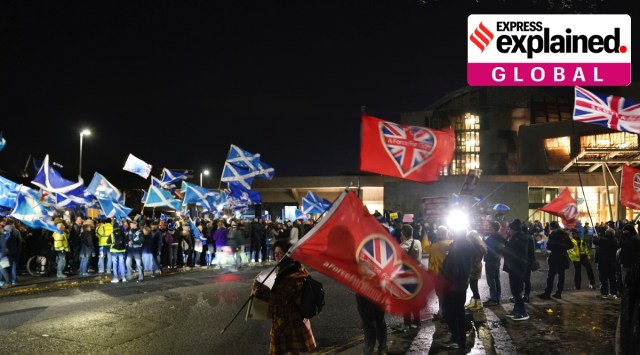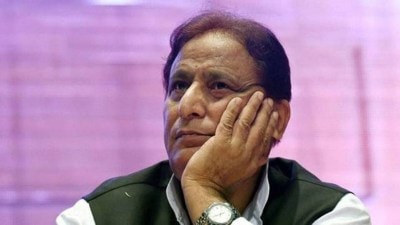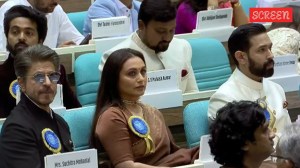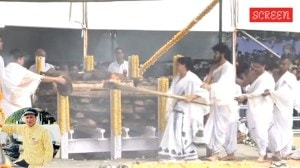UK’s apex court blocks Scotland independence vote: What is the demand about?
Why does Scotland’s government want a vote on independence from the UK, and why did the 2014 referendum on this not settle the debate? We explain.
 Supporters and opponents of Scottish independence at a rally outside the Scottish Parliament in Edinburgh, Wednesday Nov. 23, 2022. (Jane Barlow/PA via AP)
Supporters and opponents of Scottish independence at a rally outside the Scottish Parliament in Edinburgh, Wednesday Nov. 23, 2022. (Jane Barlow/PA via AP)On Wednesday (November 23), the United Kingdom’s top court gave its verdict on a petition by the government of Scotland, disallowing it from holding a referendum on becoming an independent country. The court said, “the Scottish Parliament does not have the power to legislate for a referendum on Scottish independence.”
Under the Scotland Act, all matters relating to the “Union of the Kingdoms of Scotland and England” are reserved for the UK parliament in London. Westminster can grant the Scottish government the authority to hold a referendum using a so-called “Section 30” order, a process that was used to allow a similar vote in 2014, according to Reuters.
The semi-autonomous Scottish government wants to hold a referendum next October with the question “Should Scotland be an independent country?” Responding to the Supreme Court’s judgement, the Scottish First Minister (head of the government) Nicola Sturgeon said, “That is a hard pill for any supporter of independence, and surely indeed for any supporter of democracy, to swallow.”
Why does Scotland’s government want a vote on independence from the UK, and why did the 2014 referendum not settle the debate?
The demand for independence
Currently, Great Britain includes the island that consists of Scotland in the north, England in the middle and north, and the region of Wales in the West. Along with these, northern Ireland forms the United Kingdom, a political union of nations.
But all these regions enjoy different kinds of relationships with the union as a whole. The nations of Britain have shared the same monarch since 1603, when King James VI of Scotland became James I of England. In 1707, a formal union created the Kingdom of Great Britain.
Together, the UK has a population of 68 million, of which Scots make up some 5.5 million. In 1998, the then Labour government passed the Scotland Act, which created the Scottish parliament and devolved some powers from Westminster.
This was a result of years of demands. According to an article in The Washington Post, many Scots see rule from London as a “fundamental lack of self-determination” – why Sturgeon has invoked the idea of democracy. Scotland also has its own legal and education systems, soccer league and banknotes. The Scottish National Party, which is spearheading the independence drive, also wants to remove Britain’s nuclear weapons from western Scotland.
The Vote in 2014
A 2014 referendum on the matter took place with the question “Should Scotland be an independent country?” With roughly 55 per cent of the votes going towards ‘No’, the status quo remind. Those wanting to remain may have been convinced by the argument that staying with the UK confers an advantage to the small population of Scotland, or they may have disagreed with the SNP line — that moving away and governance by Scots would help prosperity.
But things began changing soon.
In 2016, the UK voted as a whole on Brexit in a narrower 52 per cent vote. Among regions, Scotland had some of the fiercest ‘remainers’ — supporters of the demand to stay in the EU. After the result to leave, many Scots expressed dissatisfaction with having to bear the consequences of a result they did not vote for.
And then in 2019, Sturgeon’s Scottish National Party came to power with a significant majority. With its well-known planks of nationalism and independence, many took the election result as a shifting of opinion towards independence.
Also, with a more Conservative government in the UK over the years, dealing with a series of scandals, an economic crisis and multiple prime ministers coming and going within a short time span, it is believed Scotland is moving further away.
What happens now?
Sturgeon has repeatedly brought up the demand. “The SNP is not abandoning the referendum route. Westminster is blocking it,” she has previously said.
However, the Rishi Sunak-led UK government has said categorically that another referendum will be avoided till the time the current term of the government ends — by early 2025.
The first minister is still likely to push for the demand through other means, saying after the ruling, “Today’s ruling blocks one route to Scotland’s voice being heard on independence … We must and we will find another democratic, lawful and constitutional means by which the Scottish people can express their will. In my view, that can only be an election.”
Photos



- 01
- 02
- 03
- 04
- 05



































